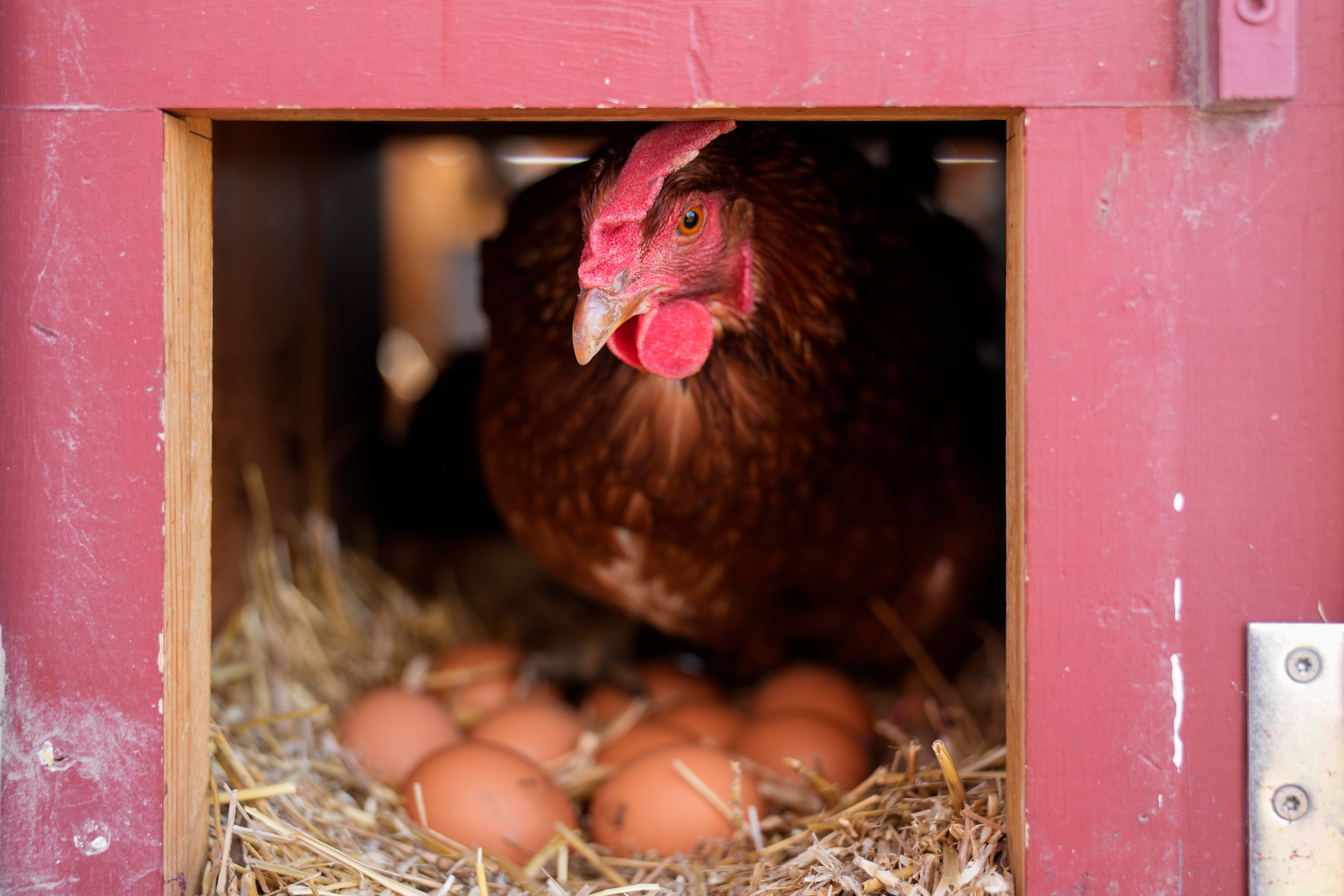Vaccines could be a key means of suppressing bird flu that has decimated flocks and driven egg prices to record highs of nearly $6 a dozen, but concerns over valuable export markets are hindering their widespread adoption.
The US Department of Agriculture has pledged $100 million to study bird flu vaccines to fight the disease with meat chicken, egg and turkey groups.
The funding is part of a larger $1 billion effort to invest in more protections to keep the virus off farms that President Donald Trump believes will help lower egg prices.
While egg and turkey producers, whose products are primarily consumed domestically, have been hardest hit by the outbreak, the chicken meat producers remain the most hesitant to vaccines.
Their reluctance stems from fears that vaccinating flocks could jeopardise lucrative export markets, which totaled nearly $4.7 billion last year.
Why is a vaccine needed?
Without a new policy including vaccines, the government will continue to slaughter every flock with a bird flu infection to limit the spread of the disease. Those deaths have totaled over 166 million birds in the U.S. since 2022.
Most birds killed are egg-laying chickens, and the death of so many hens is the main reason egg prices keep rising. The average price per dozen has hit $5.90, and in some part of the country, it is far higher.
Poultry veterinarian Simon Shane, who runs www.Egg-News.com, said the government is hesitant to use vaccines and change its policy of killing birds largely because of the meat chicken industry’s opposition.
“Basically this is a political issue, and this only came to a head because eggs are at $8 to $9 a dozen, and it’s embarrassing the government — embarrassing the present administration,” Shane said.
Why doesn’t the US use a bird flu vaccine?
Before using vaccinations, the government must decide how to devise an effective system and monitor for outbreaks within vaccinated flocks that might not show any symptoms, said John Clifford, the USDA’s former longtime chief veterinary officer, who now works with a poultry industry export group.
Once that is figured out, the industry can negotiate with countries to minimize trade problems.
“What the industry wants is the ability to develop the strategic plan to share that with the trading partners and then find out what kind of impact that that will have on trade,” Clifford said.
There are fears that vaccinating could allow the virus to linger undetected in flocks and mutate in ways that could make it more of a threat to humans and allow sick birds to get into the food supply. Like with other diseases, properly cooking chicken to 165 degrees Fahrenheit (74 degrees Celsius) will kill bird flu, but the industry and chicken buyers don’t want it there at all.

For meat chicken, known as broilers, the virus isn’t as significant because those birds are slaughtered at 6 to 8 weeks old and thus have less chance of being infected compared with egg-laying hens, which live to 2 years or older. Also most broilers are raised in the Southeast, which hasn’t had as many outbreaks as the Midwest and West.
Another delay to vaccinating concerns distribution. Egg farmers want to administer it through chicken feed or water, saying it’s not practical to give shots to millions of birds in a single barn.
It can also be difficult to tell the difference between a vaccinated bird and one that has been sick with the virus. That would make other countries nervous about importing meat.
“People have talked about how expensive it would be to monitor vaccinated populations. And it would be. But where do we want to spend our money?” said Dr. Carol Cardona, a bird flu expert at the University of Minnesota. “We’re spending our money hand over fist right now in depopulation and to buy eggs for breakfast.”
What does the experience in other countries show?
China and Mexico have been vaccinating their poultry for years, but they take different approaches.
In Mexico, chicken are vaccinated, but Clifford said the country doesn’t slaughter flocks when infections are found. That basically ensures the virus is present in poultry.
China still slaughters vaccinated flocks when infections are found, which has proven more effective at limiting the spread of the virus and reigning in outbreaks.
Clifford said the U.S. would need to continue culling flocks with outbreaks even after vaccinating, and it might make sense to give shots only to egg layers and turkeys, not broilers.
Will it help egg prices?
Don’t expect big relief anytime soon.
The USDA, which did not respond to a request for comment for this article sent last week, clearly isn’t moving to vaccinate immediately. And, regardless, it will take time to raise new hens.
“We’re going to have to wait to replace those with new hatched chicks, and it takes 20 weeks before they even start laying,” Shane said. “So I don’t know where they’re going to get the eggs from.”
Prices may ease somewhat later this year after peak demand, which happens around Easter, if massive egg farms in Iowa, Ohio, California and elsewhere can avoid more outbreaks.
The USDA has predicted that average egg prices will be 41 percent higher than the 2024 average of $3.17 per dozen. That would mean $4.47 per dozen, slightly below the current average.




